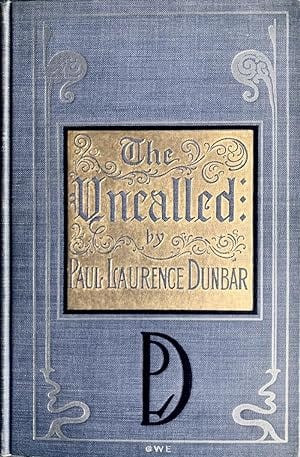Rookie Season: Debuts
Extra seasoning for your everyday food for thought
Genre: African-American, Classics
“‘You must n’t cry, Freddie; an’, some day, you kin go an’ see mamma.’
The child’s curiosity got the better of his grief. He asked, ‘Is heaven far, Mis’ Davis?’
‘Yes, dear, awful far,’ she answered. But she was wrong. Heaven is not far from the warm heart and tender hands of a good woman.”
— Paul Laurence Dunbar
The Uncalled, the 1898 debut novel by American author and poet Paul Laurence Dunbar, is a thought-provoking treatise on nature vs. nurture, duty vs. apathy.
Poor Freddie Brent! His mother has recently gone on to be with the Lord, and he’s already been abandoned (by his presumed dead and alcoholic father). The merciful church ladies—his only sure hope—got too many mouths to feed and their own burdens to bear. What a dilemma! What’s a poor Black child to do? However, all is not lost, when by some stroke of grace, Miss Hester Prime, the town’s local childless spinster, comes to the rescue, agreeing to take in orphan Freddie and raise him right as rain. No one can deny that Miss Hester’s heart is in the right place (she’s convinced her charge is God-given) but, at times, her methods seem questionable, smothering the orphan Freddie throughout his childhood rearing in attempt to shield the boy from the similar fate of his “sinful” parents. Freddie has one true friend—Miss Hester’s long-suffering suitor (and eventual husband), Eliphalet Hodges. Yet, even “Uncle ‘Liphalet” can’t save Freddie from the righteous path Miss Hester has fashioned since day one—to “make a preacher out o’ him.” But aren’t true servants of the Lord chosen rather than made?
A natural with the pen, Paul Laurence Dunbar (June 27, 1872) was born to two formerly enslaved parents from Kentucky with a God-given aptitude to tickle a reader’s fancy. Dunbar began showing literary promise while still in high school in Dayton, Ohio, where he lived with his widowed mother. He would later go on to become one of the most influential Black poets in American literature and was internationally acclaimed for his poetic verse in collections such as Majors and Minors (Hadley & Hadley, 1895) and Lyrics of Lowly Life (Dodd, Mead and Company, 1896).”1
“‘Don’t you think, Hester,’ broke in her husband, ‘that mebbe there’s some truth in what Freddie says? Don’t you think the Lord kind o’ whispers what He wants people to do in their own ears? Mebbe it was n’t never intended fur Freddie to be a preacher: there’s other ways o’ doin’ good besides a-talkin’ from the pulpit.’”
– Paul Laurence Dunbar, The Uncalled
Did You Know?
Did you know that a very prominent list of Black folk are fans of Paul Laurence Dunbar?
Tell Me More . . .
For example, the late author Paule Marshall, an influential writer in her own right, who wrote about race, gender, and identity (reflected by her Brooklyn, New York, upbringing as a daughter of West Indian immigrants from Barbados), said her discovery of Dunbar inspired her to become a writer and to adapt her middle name (Pauline) to a pen-name of Paule (with a silent “e” - pronounced Paul).
The opening lines of his “Little Brown Baby” (“Little brown baby wif spa’klin’ eyes/Come to yo’ pappy an’ set on his knee”) moved her, said Marshall, because her father had left and Dunbar’s “A Negro Love Song” (“Seen my lady home las’ night/Jump back, honey, jump back”) “roused in me all kinds of delicious feelings and hopes.”2
Oprah Winfrey called Dunbar’s poems, “the poetry of my childhood.”
Btw . . .
Did you know that Paul Laurence Dunbar was also somewhat of a business maverick for his time, self-publishing and raising capital (with United Brethren Publishing in Dayton, Ohio) in order to print his first book, Oak and Ivy, in 1893 for $125 dollars? Oak and Ivy includes one of Dunbar’s earliest and most popular poems, “Sympathy.”3 Fans of American literary powerhouse Maya Angelou will likely recognize this work by its final line (“I know why the caged bird sings!”), as Maya Angelou was another of Dunbar’s many fans.4
Rookie Season: Debuts
A STEM Grew Petals Newsletter
Next issue is Paule Marshall - Brown Girl, Brownstones:
Want Daily Quotes?
Follow on Instagram (at Captioned Black Art)
Made in Silicon Valley (with love) by author Jafari Joseph.
Copyright (C) 2024 My STEM Grew Petals Publishing. All rights reserved.
STEM Grew Petals is a reader-supported publication. To receive new posts and support my work, consider becoming a free or paid subscriber.





